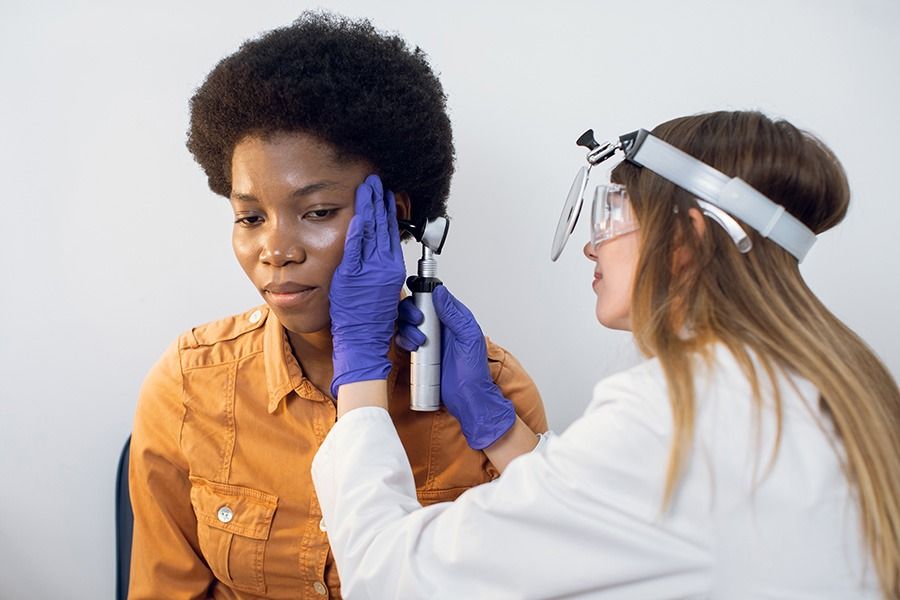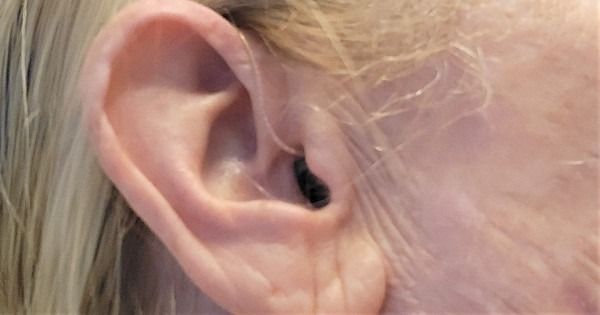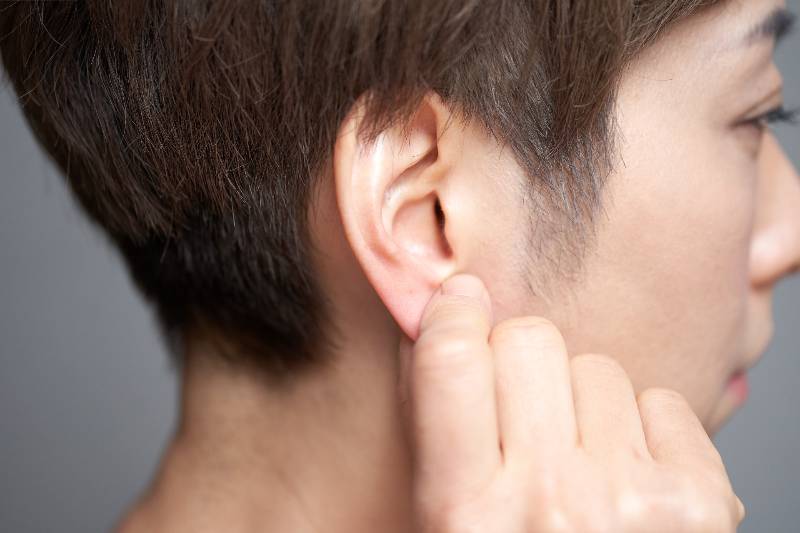Introduction
Navigating the intricate journey of aging with a condition like Otosclerosis – a type of progressive hearing loss – can be challenging. With an increasing number of older adults affected by this condition, caregivers play an instrumental role in preserving their quality of life. This blog post aims to equip caregivers with essential insights into managing Otosclerosis in older adults, highlighting its impact on quality of life, strategies for navigating this journey, and age-specific interventions that can be beneficial.
Understanding Otosclerosis from the perspective of older adults is a crucial starting point. It goes beyond the medical symptoms to include the emotional, social, and lifestyle changes that accompany this condition. By considering these aspects, caregivers can offer more comprehensive and effective care, making a tangible difference in the lives of elders dealing with Otosclerosis.
This comprehensive guide explores personal stories and strategies, offers tips and techniques for senior care, and reviews age-specific interventions for Otosclerosis. This exploration will not only help caregivers better understand the condition, but also provide them with practical solutions to promote independence and well-being in older adults affected by Otosclerosis.
Join us as we delve into these topics, understanding their nuances and implications, to provide elders with Otosclerosis the best care possible. Empathy, understanding, and an ever-learning approach are the keys to a fulfilling caregiving journey.
The Impact of Otosclerosis on the Quality of Life in Older Adults
Otosclerosis, especially in older adults, significantly affects the quality of life. It’s not just about the loss of hearing but extends to the effects it has on their daily lives, social interactions, and mental well-being. A profound understanding of these impacts can help caregivers devise effective strategies for care.
The hearing loss caused by Otosclerosis often leads to difficulties in communication, which can result in social isolation. Older adults may find themselves withdrawing from social situations due to the fear of misunderstanding conversations or being misunderstood. This could lead to feelings of loneliness and depression.
Additionally, hearing loss can have a practical impact on daily activities. Whether it’s watching television, speaking on the phone, or even hearing the doorbell, Otosclerosis can make these simple tasks challenging. Caregivers need to recognize these challenges and find solutions that can help seniors with Otosclerosis continue their regular activities with minimal hindrance.
QUIZ - CURRENT RESEARCH ON HEARING LOSS
Navigating Otosclerosis in Later Life – Stories and Strategies
The personal stories of seniors with Otosclerosis and the strategies they use to manage their condition offer valuable insights for caregivers. These narratives highlight not just the struggles, but also the resilience and creativity of these individuals in navigating their lives.
Take, for example, Mrs. Jones, a lively 70-year-old Otosclerosis patient. Despite her progressive hearing loss, she remains actively involved in her book club by using audiobooks and taking detailed notes during meetings to follow the discussion. By devising her strategies, she continues to participate in the activities she loves, thus maintaining her quality of life.
Similarly, Mr. Adams, a 78-year-old with Otosclerosis, has found a way to keep in touch with his family. Recognizing the difficulties of phone conversations, his family has shifted to video calls. This allows Mr. Adams to pick up on visual cues, making communication easier.
These stories underscore the importance of finding personalized strategies to manage Otosclerosis, emphasizing the role of caregivers in facilitating these solutions.
Senior Care for Otosclerosis Patients – Tips and Techniques
Caregiving for seniors with Otosclerosis involves a range of strategies – from understanding their hearing aids to facilitating effective communication. Here are some tips and techniques that can be beneficial.
Firstly, familiarize yourself with their hearing aid devices. Learn how to troubleshoot common problems, change batteries, and adjust settings. This will not only ensure that the devices are working optimally but also instill confidence in the senior about their consistent use.
Communication is another crucial aspect. Given that hearing loss can affect verbal communication, consider alternative methods such as using visual cues or written notes. Speak clearly and ensure that your face is visible when talking to aid lip-reading. Patience and empathy are key here, as frustration may arise from miscommunications.
Promoting social participation is also essential. Encourage seniors to participate in social activities and help them find strategies to overcome communication barriers. This can help prevent social isolation and improve their mental well-being.
IncenSonic OTC Hearing Aids for Seniors and Adults
Introducing the revolutionary IncenSonic OTC Hearing Aids for Seniors and Adults. Experience the power of advanced technology combined with sleek, discreet design, all aimed at enhancing your hearing experience.
With the Receiver In Canal (RIC) technology, these professional-grade hearing aids deliver clear and full sound directly into your ear canal. Say goodbye to the frustrations of muffled sounds and enjoy the richness of 16-channel sound processing.
Our IncenSonic R20D1 OTC hearing aids offer all-day comfort and discretion. Their lightweight and behind-the-ear design ensure a comfortable fit that is barely visible to others. You can confidently wear them throughout the day without any discomfort.
No more hassle of buying batteries or frequent recharging. With the rechargeable feature, simply charge the hearing aids for 1 hour and enjoy up to 20 hours of continuous use. Say goodbye to the inconvenience of constant battery changes or daily recharging.
Experience the ultimate in noise and whistling cancellation. Our digital signal processing, combined with our unique hearing compensation algorithm, effectively reduces feedback noise, allowing you to focus on what truly matters – the sounds that surround you.
We are confident in the quality and performance of our IncenSonic OTC Hearing Aids. That’s why we offer a 100% satisfaction guarantee. If you’re not completely satisfied within the first 45 days, simply return them for a full refund. Your satisfaction and improved hearing experience are our top priorities.
Invest in your hearing and regain the joy of clear and amplified sound with IncenSonic OTC Hearing Aids for Seniors and Adults. Experience the perfect blend of cutting-edge technology, comfort, and satisfaction. Don’t let hearing loss hold you back any longer – take control of your hearing and enjoy life to the fullest.
Age-Specific Interventions for Otosclerosis – A Review
With advancing age, the needs of Otosclerosis patients change, and so should the interventions. Age-specific interventions take into account the physical, cognitive, and emotional changes associated with aging and adapt strategies accordingly.
For instance, for seniors with cognitive decline, simpler hearing aids with fewer settings may be more suitable. Regular appointments with an audiologist can ensure the device’s settings match their current hearing levels.
The integration of assistive listening devices (ALDs), such as amplified telephones or TV headphones, can be helpful for older adults who have trouble with certain everyday activities. These can be tailored to fit the individual’s lifestyle and preferences, making them a practical intervention for seniors with Otosclerosis.
Regular hearing rehabilitation sessions can also be beneficial. These can help seniors better understand their hearing loss, learn communication strategies, and gain confidence in using their hearing aids or other devices.
Promoting Independence and Well-being in Elderly Otosclerosis Patients
As a caregiver, promoting the independence and well-being of seniors with Otosclerosis should be a priority. This involves focusing on their mental health, encouraging independence, and advocating for their needs.
Fostering mental health involves recognizing and addressing the feelings of frustration, embarrassment, or loneliness that often accompany Otosclerosis. This might involve regular conversations about their feelings, professional counseling, or facilitating support group participation.
Encouraging independence involves finding ways for seniors to manage their condition effectively. This could include teaching them how to use and troubleshoot their hearing aids, facilitating the use of assistive listening devices, or helping them devise their communication strategies.
Advocacy is also a significant part of caregiving. This involves ensuring seniors have regular audiologist appointments, their hearing aids are well-maintained, and their social, emotional, and practical needs are being met. This holistic approach to caregiving can significantly improve the quality of life for seniors with Otosclerosis.
Conclusion
Understanding the impact of Otosclerosis on the quality of life of older adults sets the stage for effective caregiving. As we’ve explored, Otosclerosis doesn’t just cause hearing loss – it affects social interactions, mental well-being, and the ability to enjoy everyday activities.
In navigating this journey, personal stories and strategies offer valuable insights. These narratives underscore the importance of personalized solutions, resilience, and creativity in maintaining quality of life, despite the challenges posed by Otosclerosis.
Effective senior care involves a blend of technical knowledge about hearing aids, communication strategies, and promoting social participation. These practical tips and techniques can make a tangible difference in the lives of seniors with Otosclerosis.
The exploration of age-specific interventions highlights the importance of adapting strategies to suit the changing needs of older adults. From simpler hearing aids to assistive listening devices and regular hearing rehabilitation sessions, these interventions are crucial to providing comprehensive care.
Above all, promoting the independence and well-being of seniors with Otosclerosis should be the guiding principle of caregiving. This involves acknowledging their emotional struggles, encouraging self-management, and advocating for their needs. With this holistic approach, caregivers can support seniors in living their golden years with dignity, joy, and fulfillment.
The journey of caring for an older adult with Otosclerosis is certainly challenging. Still, with empathy, understanding, and a willingness to learn and adapt, caregivers can turn these challenges into opportunities for growth, connection, and enhanced quality of life for those they care for.
In the end, every strategy, every intervention comes down to one fundamental principle: improving the quality of life for seniors with Otosclerosis. This principle should guide every decision and action, ensuring that these individuals not only live their life but thrive, irrespective of the hurdles Otosclerosis might present.
This comprehensive guide provides caregivers with a foundation to build upon. However, every caregiving journey is unique, and caregivers should continuously seek to learn more, understand better, and develop novel strategies that suit the needs and preferences of the older adults they care for.
Finally, remember that caregiving is as much a journey for the caregivers as it is for those they care for. It’s a journey of shared experiences, of highs and lows, of learning and growth. With every challenge comes the opportunity to make a difference, and with every difference made, comes the reward of improved quality of life for seniors living with Otosclerosis.








